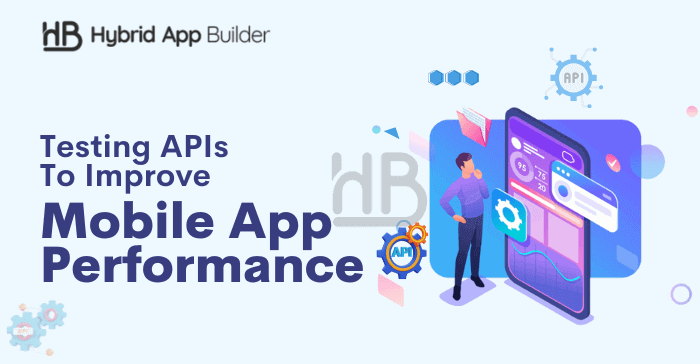
Imagine using an app that constantly throws frustrating errors, making your experience less smooth than expected. It is a big no for you to use that particular app. Crashes, slow loading times, inefficient data processing, poor navigation, and incomplete onboarding are just a few of the issues that can dent any app’s credibility.
To avoid such a problem for users, Mobile app development companies need to ensure that every feature and functionality of their app is accessible through accurate and up-to-date API endpoints. These endpoints serve as the gateways to a seamless and reliable user experience.
“API testing: Fueling innovation in mobile app development, one test at a time.”
In this blog, we’ll delve into the different types of performance tests that can shed light on the performance of your mobile app.
What Is API Testing?
It is a series of tests to check the performance and efficiency of an app. It involves testing various aspects of an application, such as the user interface and back-end functionality. Failing to meet these expectations can lead to dissatisfied users, negative reviews, and a tarnished reputation.
Mobile app development companies do this test to check the application is working correctly and meets user expectations. Moreover, It can help identify potential bugs or issues early in preventing minor issues from becoming severe problems.
Types Of API Testing To Enhance App Performance
Functionality Testing
Functionality testing involves checking if the app does what it is supposed to do. For example, the work of an app is to display different subscription plans after a user logs in; the app must process this information correctly.
This mobile app testing helps you understand how your app will perform in the real world by running it on multiple devices under different conditions. The results of these tests help you improve the app’s user experience and optimize it for different hardware configurations.
Error Handling Efficiency Test
This type of mobile application testing involves identifying possible input points where the app expects data and fuzzing those points to see what kind of error is generated (strings, integers, JSON, XML, etc.). Error handling testing checks whether applications can handle errors safely.
It also determines whether the app can handle the error properly or require intervention. Finally, it is about error reporting and analyzing the resulting symbolized stack traces.
Loading Speed Testing
It estimates that a page can lose approx 60% of its visitors if it takes more than two seconds to load. A fast load time is crucial to increase an app’s user experience and conversion rate.
Load testing is essential for identifying performance bottlenecks in the mobile app development process. It reveals the weakest parts of an app, such as the server, database, and network components. It also helps determine appropriate app architecture, hardware specifications, and scalability.
Penetration Testing
Penetration testing is a type of test that focuses on checking the security of an API. Here, the tester intentionally tries to attack the API to understand the vulnerability of the API from an external perspective. The penetration attack targets specific parts of the API or aims to test the entire API for weaknesses. All the best mobile apps need to pass penetration testing.
Unit Testing
Unit testing focuses on even the most minor testable components of an application. During the test, developers identify bugs, errors, or unexpected behaviors specific to each unit, such as a particular function, class, or module. The tester sends specific requests to each endpoint and verifies that the expected responses are received.
Fuzz Testing
Fuzz testing sends large amounts of random or unexpected data as input to the API endpoints. Testers do this to trigger unexpected behavior or crashes and test the robustness and resilience of the API against various data input scenarios.
Fuzz testing mimics real-world scenarios where the API may encounter unexpected or malicious input in mobile applications.
Security Testing
The app development ecosystem is complex and prone to hardware, software, and network vulnerabilities. That makes it more than essential to test all ecosystem components to discover vulnerabilities attackers can exploit.
You learn data security through security testing by performing input validation tests.
The app prevents processing erroneous input that it may receive. Using a simple measure, it effectively controls the compromise of user-generated data, such as passwords, bank account numbers, and other sensitive information.
You can also hire top mobile app development company to improve the security of your newly created app. One effective way to secure your app information is “encrypted communications.”
Endnote
Just like you don’t want to use an app with frequent issues, no one likes that. API testing is the one vital step in the development process, where you identify and resolve issues before they reach the end-users.
It saves time, resources, and potential frustrations for customers, paving the way for your app to grow faster. It also facilitates better collaboration between developers and testers in mobile app development. They work together to ensure the app’s functionality and reliability.
